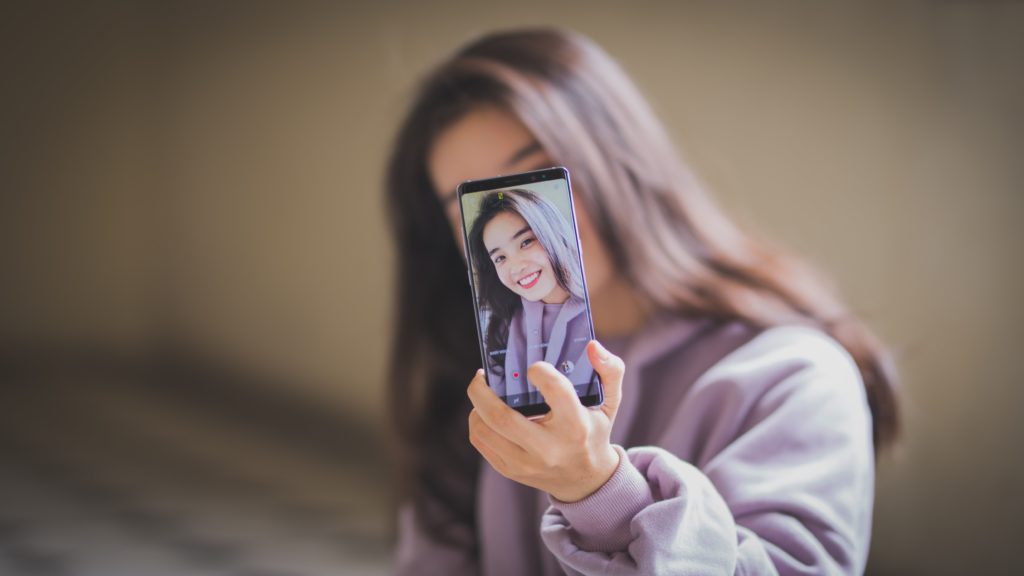Tiktok’s ‘Bold Glamour’ filter sparks debate over toxic beauty standards


TikTok’s latest sensation is a real-time filter called Bold Glamour that sashays right past debates over toxic beauty standards on social media, going all in on giving users a new face.
Quietly released to the app’s more than a billion users, Bold Glamour convincingly blends a user’s real face with an AI-generated ideal of a supermodel, drawing both laughs and alarm.
Millions of posts on TikTok capture the shock at Bold Glamour’s superpowers, with users marvelling at their plumped-up lips, well-chiselled chin and fluffy eyebrows worthy of a fashionista.
“It’s the new onslaught of the ‘beauty myth’,” said Kim Johnson, associate professor of nursing at Middle Georgia State University in the United States.
Effects like Bold Glamour “lead to unhealthy behaviours such as excessive dieting, comparison, and low self-esteem,” Johnson said.
Filters and effects have been a stalwart of TikTok, Instagram and Snapchat for years, but the latest generation of features like Bold Glamour are supercharged.
“It is not subtle. It is instantaneous. It is powerful,” said Gwendolyn Seidman, professor of psychology at Albright College, in Psychology Today.
Those yearning for social approval, like under-pressure teens, “won’t like what they see when they turn the filter off, and that’s the problem,” she added.
‘So cool’
But beyond Bold Glamour’s troubling aesthetic, observers are scratching their heads about the technology itself and wondering if the app is an unsung advance in artificial intelligence.
Earlier filters overlayed an effect — like joke lenses on Snapchat —over an onscreen face and were easily discernible with a sudden movement or by waving a hand in front of the image.
“What’s so cool about this is that you can … take your hand and put it in front of your face and it (continues to look) pretty darn real,” mixed reality artist Luke Hurd explained on TikTok.
And while the technology has been available on powerful computers, real-time video filters are now on smartphones, ready for all.
“This is AI for the masses to alter one’s appearance and that´s what´s catching so many people’s attention,” said Andrew Selepak, a social media professor at the University of Florida.
Contacted by AFP, TikTok declined to discuss the technology behind the app, leaving an air of mystery on how Bold Glamour actually works.
The company did insist that “being true to yourself is celebrated and encouraged” on the site and that effects help empower “self-expression and creativity.”
“We continue to work with expert partners and our community, to help keep TikTok a positive, supportive space for everyone,” TikTok said in a statement.
According to experts, Bold Glamour is using generative AI, following the same idea behind ChatGPT or Dall-E, apps that can churn out poems or art and designs on demand almost instantaneously.
Petr Somol, the AI research director at Gen, a tech security firm, said these type of filters have existed for a couple of years, but TikTok’s latest version is “pretty fine-tuned and well done”.
Crucially, if Bold Glamour were indeed generative AI’s latest iteration, it would mean that the filter depends on goldmines of data to deliver its increasingly perfect effects.
This dependency on big data comes as the Chinese-owned firm is under intense scrutiny by the United States and other western governments that fear the company´s ties to communist authorities in Beijing.
“The question is whether TikTok is really concerned with the implications of this new shiny thing,” said Selepak.
Path to ‘deep fake’
Catfishing, scams, deep fakes: some wonder whether state-of-the-art filters are pointing to a world where the ability to misuse the technology is now at the fingertips of anyone with a smartphone.
The latest filters “are not necessarily a deep fake technology as such, but there is a relatively straightforward path extending in that direction,” said Somol.
Siwei Lyu, professor of computer science at the State University of New York at Buffalo, said it was unlikely that the major platforms like TikTok or Meta-owned Instagram would knowingly provide dangerous tools.
But “what makes them more dangerous is people who understand the technology could change it to help users evade being identified online”, opening new avenues for misuse, he added.
Leave a Comment